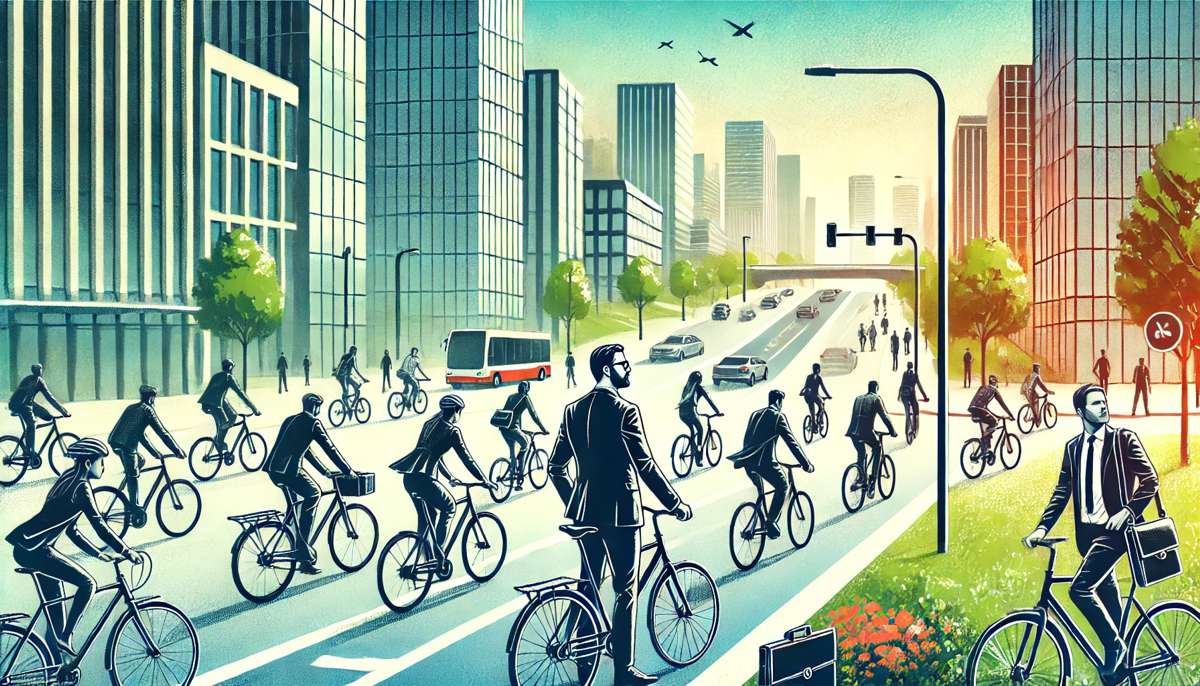Fintech Solutions are bridging the Financial Divide
Small and medium-sized enterprises (MSMEs) are the lifeblood of economies in developing countries. These businesses, which include everything from small retail stores to tech start-ups, play a crucial role in job creation, economic diversification, and innovation. However, they face significant hurdles in accessing finance, a problem that has been exacerbated by the COVID-19 pandemic.
Fintech solutions are emerging as a powerful tool to bridge this finance gap, offering tailored financial products and services that meet the unique needs of these enterprises.
The Backbone of the Economy
In many countries, MSMEs form the economic backbone, accounting for about 90% of all businesses and employing a significant portion of the workforce. These enterprises are particularly important for women, providing opportunities for financial independence and supporting education and healthcare for families.
Despite their importance, MSMEs often struggle to secure the finance they need to grow and innovate. This limitation hinders their ability to expand, hire more staff, and adopt new technologies, ultimately affecting their competitiveness in the market.
Key Financial Barriers
Several factors contribute to the financial challenges faced by MSMEs:
- Lack of Collateral: Many MSMEs do not have substantial physical assets to use as collateral for loans.
- Insufficient Credit History: Newer businesses or those in informal sectors often lack the credit history required by traditional lenders.
- Complex Financial Products: Financial products offered by traditional banks can be complex and not tailored to the specific needs of MSMEs.
- Regulatory Hurdles: Stringent regulatory requirements and high costs associated with small loans further complicate access to finance.
- Geographical Limitations: In rural or underdeveloped areas, the reach of financial institutions is limited, making it difficult for MSMEs to access financial services.
- Gender Barriers: Women-owned or led businesses face additional cultural and institutional barriers.
Innovative Credit Assessments
Fintech solutions are revolutionising how credit assessments are conducted. Traditional credit scoring methods often do not apply to MSMEs, particularly those in the informal sector. Fintech companies are using alternative data sources, such as transaction histories and social media activity, to assess creditworthiness. This approach allows for more accurate and inclusive credit assessments.
For example, Capital Float in India provides collateral-free loans based on real-time cash flow analysis, enabling MSMEs to access finance quickly and efficiently. Such innovations are crucial for businesses lacking substantial physical assets.
Digital Lending Platforms
Digital lending platforms leverage algorithms and data analytics to speed up the credit assessment process, resulting in quicker loan approvals with more relaxed criteria. This is particularly beneficial for MSMEs, which often need timely access to funds to seize growth opportunities.
Fintech also enhances MSMEs’ ability to participate in global and regional markets. Digital platforms facilitate business registration, market access, and integration into global value chains. Payment solutions like PayPal and Alipay streamline business transactions, improving cash flow management and enabling expansion into international markets.
The Impact of AI and Cloud Services
AI and cloud services are becoming indispensable for MSMEs, driving customer service, risk management, and operational efficiency. AI-powered chatbots, for instance, offer 24/7 customer support, handling inquiries and reducing operational costs. Robotic Process Automation (RPA) is used to automate repetitive tasks, minimising human error and boosting efficiency.
AI also plays a critical role in fraud detection. By analysing transaction data, AI systems can identify and flag suspicious activities, improving compliance and reducing the risk of financial crime. For example, AI algorithms help financial service providers manage credit risk more effectively by analysing both structured and unstructured data.
Supporting Financial Management
Cloud services offer robust security features and resilience to physical disasters, crucial for MSMEs vulnerable to cyberattacks. In the Philippines, where 57% of MSMEs experienced costly cyberattacks in 2023, cloud-based solutions provide essential cybersecurity at cost-effective prices.
Moreover, cloud services support better financial management. For instance, Cantilan Bank in the Philippines uses cloud technology to extend financial services to unbanked and underserved regions. This initiative, supported by the Asian Development Bank and Oradian, demonstrates the transformative impact of cloud services on financial inclusion.
Transforming Financial Access
The digitisation of banking is transforming the MSME sector by making financial services more accessible and fostering innovative business practices. Consumers increasingly prefer online and mobile banking, prompting banks to enhance their digital offerings. This digital-first strategy not only boosts customer interaction but also increases operational efficiency.
In the Philippines, the rise of e-commerce and digital platforms drives the digital transformation of MSMEs. Partnerships between the government and private sector provide digital literacy programs and technological resources, helping MSMEs expand their market presence and operational efficiency. E-commerce is expected to grow substantially by 2025, positioning MSMEs for greater competitiveness in a digital-first market.
Regional Initiatives
In Indonesia, the government has partnered with major technology firms to promote digital tools specifically designed for small businesses. Platforms like GrabMerchant support MSMEs, particularly in the food and beverage sector. Similarly, Cambodia’s Bakong system integrates local banks and financial institutions, facilitating seamless peer-to-peer transfers and enabling MSMEs to manage sales more effectively through electronic payments.
The Role of Fintech in B2B Payments
Fintech firms are revolutionising B2B payments by digitising payment processes and enhancing cross-border capabilities. Partnerships like the one between Visa and SAP integrate payment systems into SAP’s Business Technology Platform, accelerating B2B transactions across regional supply chains. This is particularly beneficial for smaller businesses that lack the resources to digitalise payment acceptance.
Linkages such as PayNow in Singapore and PromptPay in Thailand enable instant cross-border transactions, significantly improving cash flow management for MSMEs involved in international dealings. However, high compliance costs across different regulators in Asia and the Pacific can be a barrier to scaling digital B2B payments.
Alternative Payment Solutions
In regions where traditional banking is cost-prohibitive, alternative payment solutions like e-wallets and mobile wallets are becoming prevalent.
These platforms provide essential services to areas underserved by traditional banks, modernising business transactions and expanding MSMEs’ operational scope and market reach.
Regulatory Sandboxes
Ensuring the sustainability of MSMEs through adequate governmental support and accessible financing is crucial for inclusive economic growth. Regulators are increasingly recognising the need to promote fintech innovations while safeguarding financial stability and consumer protection.
Several countries have adopted regulatory sandboxes, allowing fintech companies to test and refine their services within a controlled environment. Singapore, for instance, established its regulatory sandbox in 2016, enabling fintech start-ups to experiment with new technologies without full regulatory compliance. This model facilitates rapid development and testing while maintaining regulatory oversight.
Promoting Financial Inclusion
In Malaysia and Thailand, regulatory frameworks encourage fintech solutions aimed at expanding financial services to underserved parts of the economy, including MSMEs. These sandboxes have proven crucial in launching various fintech services, such as digital payments and alternative lending, tailored specifically to the needs of MSMEs.
The Philippines has supported digital banking and payment systems through its regulatory landscape. The Bangko Sentral ng Pilipinas (BSP) has granted several digital banks Certificates of Authority, creating a competitive environment that benefits both consumers and businesses, including MSMEs.
Advancing Towards a Digitally Inclusive Future
The integration of fintech solutions is essential for bridging the financial gap faced by MSMEs. By leveraging AI, cloud services, and digital banking, these enterprises can enhance their operational efficiency, improve customer service, and expand their market reach. Regulatory support and innovative financial products tailored to the needs of MSMEs are crucial for fostering sustainable and inclusive economic growth in the region.
Fintech firms play a transformative role in enhancing MSME access to finance, promoting financial inclusion, and supporting the achievement of Sustainable Development Goals. As these technologies become more accessible, MSMEs are well-positioned to drive economic growth, create jobs, and innovate across various sectors, ensuring a vibrant and resilient future for the region.















